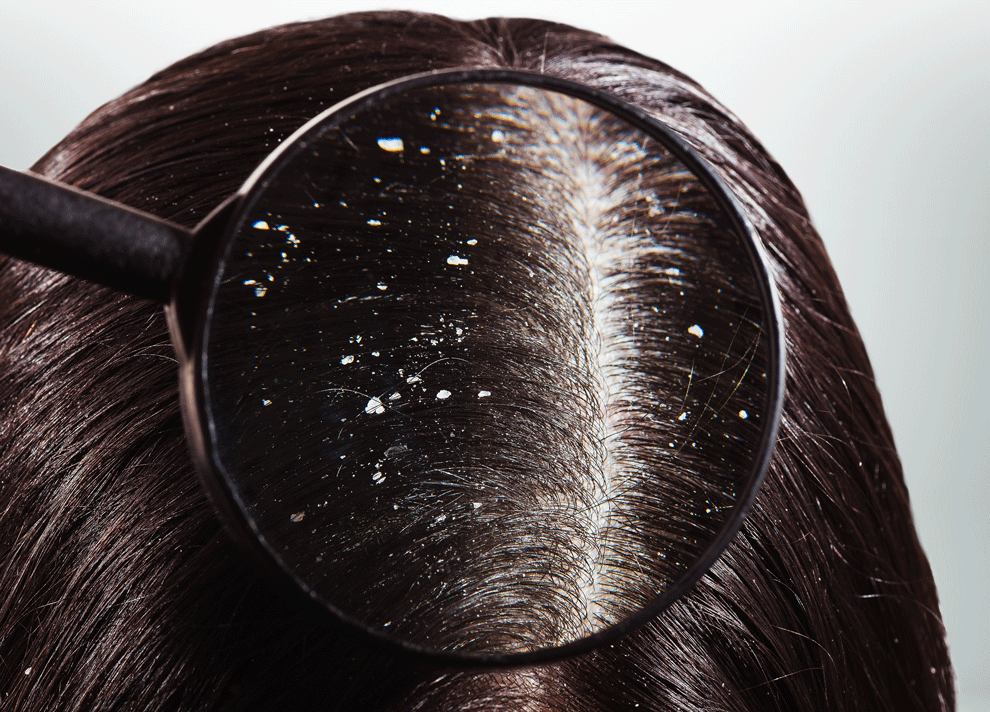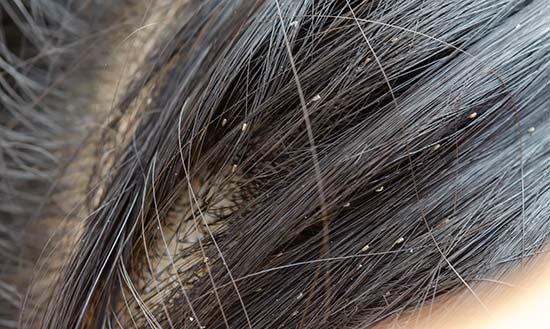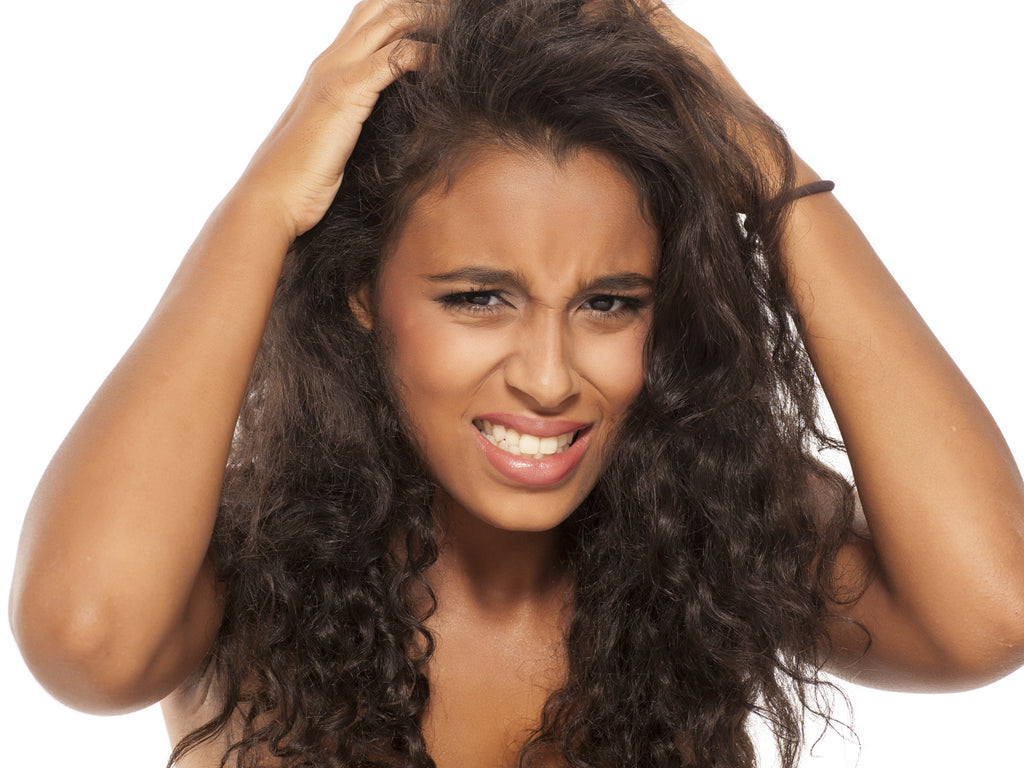HAIR LOSS DUE TO DRY AND ITCHY SCALP: CAUSES AND TREATMENT

Itchy scalp, also known as scalp pruritus, is a common problem especially among adults. Hair loss, flakiness, bumps and even scaly patches are most at times associated with itchiness.
Itchy scalp can be caused by several factors including dandruff, head lice and even allergic reaction and can surprisingly be an underlying symptom of a medical condition.
Patting and vigorously scratching your scalp with fingernails or hair combs in public can be embarrassing and no one wants to
look in the mirror and see skin flakes all over their shirt. Apart from causing hair loss, vigorously scratching your scalp can also lead to open wounds that are vulnerable to infection.
So what are the causes of dry and itchy scalp and what are some combative measures you can take to stop the ailment?
Causes of Itchy scalp
1. Dandruff

What is dandruff? Dandruff is a common, noncontagious, easy-to-manage skin condition that causes scalp to itch along with white or yellow crusty or powdery flakes on your scalp and can ultimately lead to hair loss.
It’s caused by a fungus called Malassezia Globosa that breeds on oils of the scalps, other known causes of dandruff are irritated or oily skin, not shampooing enough, dry skin, sensitivity to hair care products and even psoriasis and eczema.
Treatment
The itching and flaking of dandruff can be treated. For mild dandruff, first try daily cleansing with a gentle shampoo to reduce oil and skin cell buildup. If that doesn’t help, try a medicated dandruff shampoo. You may need to try more than one shampoo to find the hair care routine that works for you. And you’ll likely need repeated or long-term treatment.
You can find out how to get the best results from these products by watching the short video below. You can also get 15% discount by texting hairloss to 28748.

2. Head lice

Head lice are tiny, wingless insects that live in human hair and feed on blood in the scalp.
If you have head lice, you will always find yourself itching and scratching, especially around the back of your neck and behind the ears. Scratching can make the scalp look scaly or have crusty spots.
When you look closely at your hair on the mirror, you might see tiny, oval-shaped, white or brown-black nits attached to the root of the hair, near the scalp.
Hair Conditioner Treatment
Note: This treatment takes approximately 10 days.
- Apply plenty of hair conditioner to the dry hair until it is saturated.
- Comb through with an ordinary comb or brush to remove tangles.
- Section and comb the hair thoroughly with the nit comb in 4 directions – forwards, backwards, left and right.
- Wipe the comb on a white paper towel to check that the dark adult lice or the paler hatchlings (young lice) are being removed. You may need to use a magnifying glass and a strong light to see the lice and eggs.
- Continue combing the hair in sections until the whole head has been checked.
- Some eggs will be removed by combing but you may need to use your fingernails to remove as many eggs as possible from the base of the hair shaft near the scalp. Hatchlings that emerge from missed eggs will be removed by combing with conditioner over the 10-day period. Only eggs within 1cm of the scalp will hatch. Eggs that have grown further out with the hair shaft will have already hatched or died.
- When you have finished checking, rinse the conditioner out and dry the hair.
- Repeat this process every 1 to 2 days over the 10-day treatment period. To save time during a school week, consider this combing schedule: Tuesday, Thursday, Saturday, Sunday, Tuesday, Thursday.
- Check the waste material you comb out for adult head lice each day after combing. If any are found, this indicates a new outbreak and you will need to start again from day 1, as new eggs may have been laid by the adult lice.
- Check for head lice once a week for at least 4 weeks after you complete the 10-day treatment. You may wish to do this on the weekend when you have more time. Applying plenty of hair conditioner makes combing easier and more effective.
Check all other household members for head lice and treat as necessary.
3. Allergic Reactions

Itchy scalp due to allergic reactions is always common among people who uses hair dye frequently. If your itching is accompanied with rashes, you may have a condition called allergic contact dermatitis
Some hair products like: shampoo, conditioner, hair dye, hair gel, and hair mousse, can irritate the scalp and hair follicles, causing itching. If the irritation persists without being treated, it can lead to the damage of the hair follicles and cause hair loss.
A common cause of allergic scalp reactions is a chemical called paraphenylenediamine, which is a component of many black hair dyes.
Treatment
- Allergy creams or medications can often treat the itchiness.
- If a product causes an allergic reaction, stop using it and switch to a different brand.
If your itching are due to allergic reaction, evaluate your hair care products. Try to eliminate any harsh products and slowly remove treatments from your routine. This can help you understand what is causing your reaction.
HOW CAN DRY AND ITCHY SCALP CAUSE HAIRLOSS?
If you notice a large amount of hair in the drain after you wash your hair, clumps of hair in your brush, thinning and your hair easily falling off when pulled gently, you are experiencing hair loss. Below are different ways itchy scalp leads to hair loss
- Scalp Psoriasis, an autoimmune disorder, can lead to hair loss. Scalp psoriasis is a common skin disorder that makes raised, reddish, often scaly patches. It can pop up as a single patch or several, and can even affect your entire scalp.
- Atopic dermatitis, a type of eczema, that makes your skin red with scales on your scalp can often cause hair loss. It does not cause hair loss directly but it can provoke one to scratch their scalp excessively, causing temporary hair loss.
- Dandruff can cause hair loss if left untreated for a prolonged period. Frequent scratching and brushing on your itchy scalp due to dandruff can damage the hair roots and lead to hair loss
- Folliculitis often causes temporary hair loss and scalp itching. A severe case of folliculitis may cause permanent hair loss. Folliculitis is a common skin condition in which hair follicles become inflamed. It’s usually caused by a bacterial or fungal infection.
- The excessive scratching due to head lice may cause temporary hair loss.
- Scalp ring worm can weaken hair follicles and lead to hair loss. Scalp ringworm (tinea capitis) is a fungal infection that penetrates the hair shaft and causes itchiness.
CONTRIBUTIONS AND RECOMMENDATION BY MORALE OCAIN, GEORGIA COSMETOLOGIST.

Hair loss is a condition that affects women’s self esteem, confidence, and can affect your relationships. Hair loss is caused by vitamin deficiencies, medication, hormones, lack of haircare, and as of recently Covid-19.
Determining what type, and causes of hairloss is important. A dermatologist, which is a hair care provider’s specialist, can provide these diagnoses. Once that is determined, a hair care provider can be a great aid in working with the specialist.
Providing a strategy to the specialist on the type of products useful to the condition will be beneficial.
As a Master Cosmetologist whose passion is to combat hair loss, I recommend starting with a concentrated protein.
Another contributor to hair loss is a dry and itchy scalp, how so, dryness is the start to breakage. A scalp that isn’t balanced causes thinness. The constant scratching and friction in a designated area. The combination of thinness and breakage produces hair loss.
As professionals, we say, “are you drinking enough water?” That’s a small portion of it. It must be a balance of healthiness from the inside and outside. Being hydrated internally and hydrating your strands is key.
Influance Products has an excellent selection to accomplish this. IT’S NATURAL, ROSEMARY SYSTEM. This system was developed by the assistance of Karen Brace. The first trichologist practitioner of Virginia, truly hit the mark with this one.
During one of her trichology courses, I witnessed through the many photos she took of her clients using the Rosemary System and the thin areas filled back in with new hairs. The thin areas closed in, and filled out.
The system consists of the Rosemary Stimulating Shampoo, Conditioner, Stimulating Spay, Stimulating Scalp Oil, and my old time favorite, GROWTH CREAM. The shampoo is enriched with Rosemary, and Peppermint to promote a healthy scalp and stimulate hair growth. Willow Bark exfoliates, helping to unclog pores, and hair follicles.
The conditioner is the food that feeds the strands layers of herbs. This method improves circulation to the scalp, encouraging hair growth.
Rosemary Stimulating Spray, IS BOSS!
